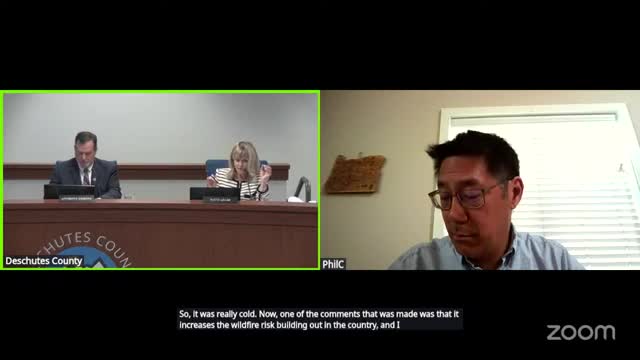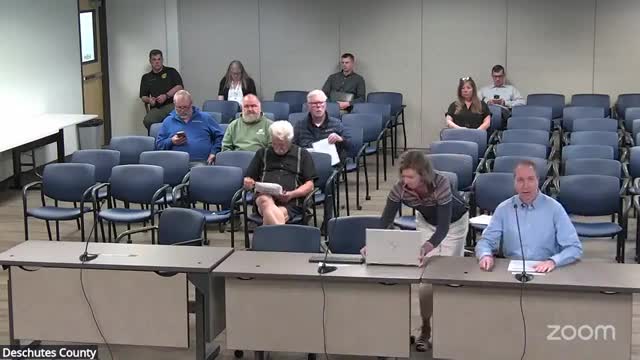Article not found
This article is no longer available. But don't worry—we've gathered other articles that discuss the same topic.

County declares public‑use fire restrictions on unprotected lands and county property, effective June 1

Cascades East Transit plans earlier service, new routes and fares; public comment period open

Board directs scheduling of hearing on complaint against Four Rivers Vector Control District director

County adopts emergency ordinance updating 'room tax' to 'transient lodging tax'; code aligned with state language

